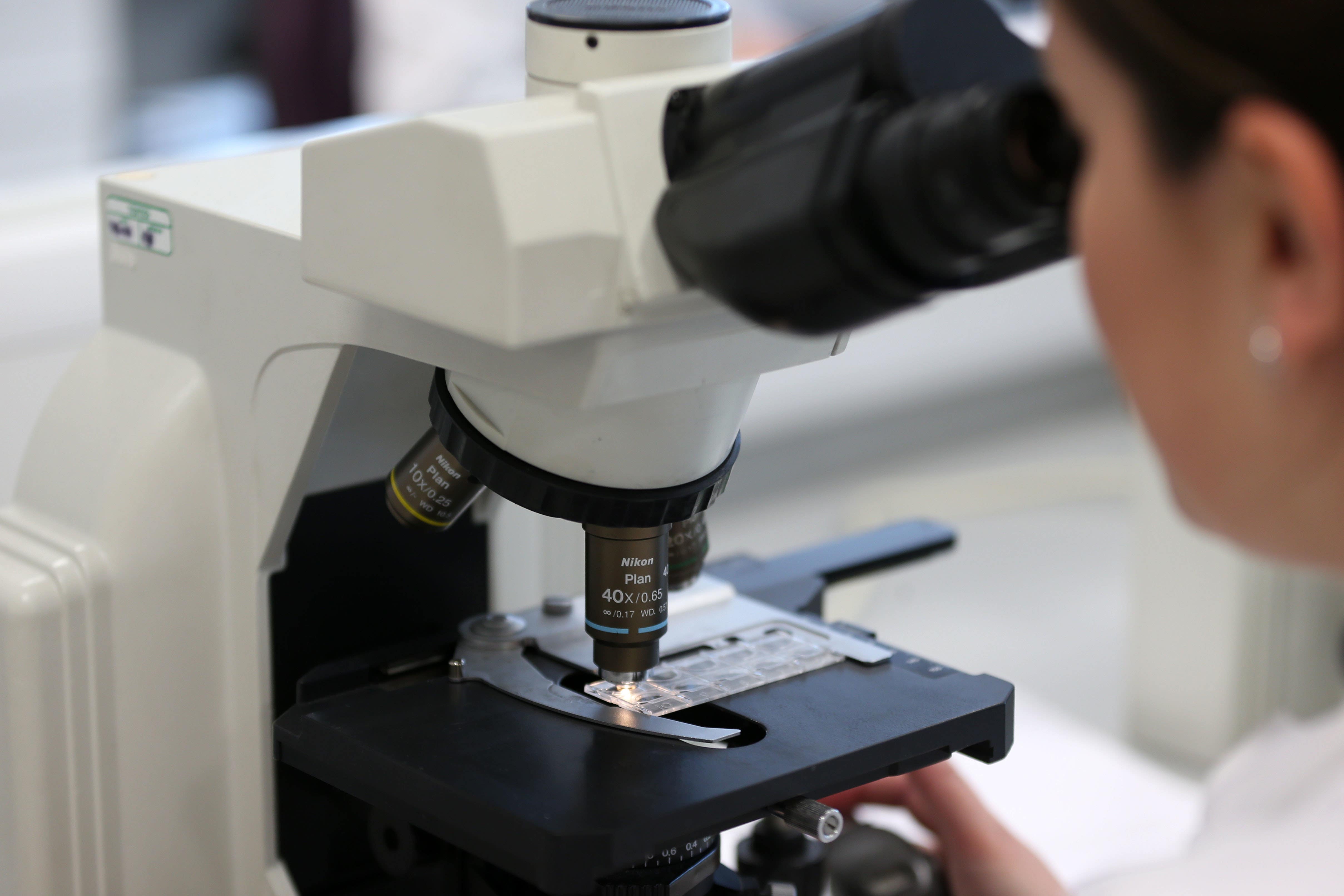The gene that could hold key to taming one of world’s deadliest cancers
The disease has taken the lives of high-profile patients such as Alan Rickman, Sir John Hurt, Steve Jobs and Patrick Swayze

Your support helps us to tell the story
From reproductive rights to climate change to Big Tech, The Independent is on the ground when the story is developing. Whether it's investigating the financials of Elon Musk's pro-Trump PAC or producing our latest documentary, 'The A Word', which shines a light on the American women fighting for reproductive rights, we know how important it is to parse out the facts from the messaging.
At such a critical moment in US history, we need reporters on the ground. Your donation allows us to keep sending journalists to speak to both sides of the story.
The Independent is trusted by Americans across the entire political spectrum. And unlike many other quality news outlets, we choose not to lock Americans out of our reporting and analysis with paywalls. We believe quality journalism should be available to everyone, paid for by those who can afford it.
Your support makes all the difference.A gene that helps organs in the body function properly could hold the key to taming one of the world’s deadliest cancers.
Scientists have discovered pancreatic cancer is able to shut down certain molecules in the HNF4A gene to help it spread and grow aggressively.
This finding raises fresh hope in the hunt for more effective treatments for a disease that kills nearly 9,000 people in the UK every year and has a poor survival rate, the researchers said.
There are more than 10,400 new cases of pancreatic cancer in the UK each year but only 10% of people will survive beyond five years.
The disease has taken the lives of high-profile patients such as Alan Rickman, Sir John Hurt, Steve Jobs and Patrick Swayze.
Dr Maria Hatziapostolou, a scientist in Nottingham Trent University’s John van Geest Cancer Research Centre, said: “Pancreatic cancer has the lowest survival of all the 20 common cancers.
“The survival of patients beyond five years has improved very little for some time and so it’s extremely important that we find new ways to better understand this disease, how it spreads and why it is so aggressive.
“This work, which has provided new understanding and knowledge of how the cancer behaves, will hopefully help pave the way for potential new treatments in the future.”

Pancreatic cancer is often diagnosed at an advanced stage when treatment options become limited, with more than half of patients dying within three months of diagnosis.
For the study, published in the journal Gastro Hep Advances, the researchers analysed healthy as well as pancreatic cancer tissue samples.
They found pancreatic cancers triggered a process known as DNA methylation, causing the beneficial HNF4A molecules to switch off and allowing tumours to grow rapidly.
Dr Hatziapostolou said: “Loss of HNF4A drives pancreatic cancer development and aggressiveness and we now know correlates with poor patient survival.”

Dr Chris Macdonald, head of research at Pancreatic Cancer UK, which funded the study, said: “We desperately need kinder and more effective treatment options for pancreatic cancer.
“The majority of pancreatic cancers are diagnosed at a late stage, with 80% not being detected until after the disease has spread and is no longer operable.
“This is reflected in its poor survival rate – over half of people with the disease die within three months of diagnosis.
“Improving our fundamental understanding of what makes pancreatic cancer grow and spread so rapidly is vital if we are to make much-needed breakthroughs.
“This project gives us new information on how pancreatic cancer is able to suppress certain molecules to help it spread aggressively around the body which, in turn, could lead to the development of more effective treatment options in the future.”
Scientists from the University of Nottingham, Stanford University and the University of California and Cedars-Sinai Medical Centre, Los Angeles, were also involved in the project.